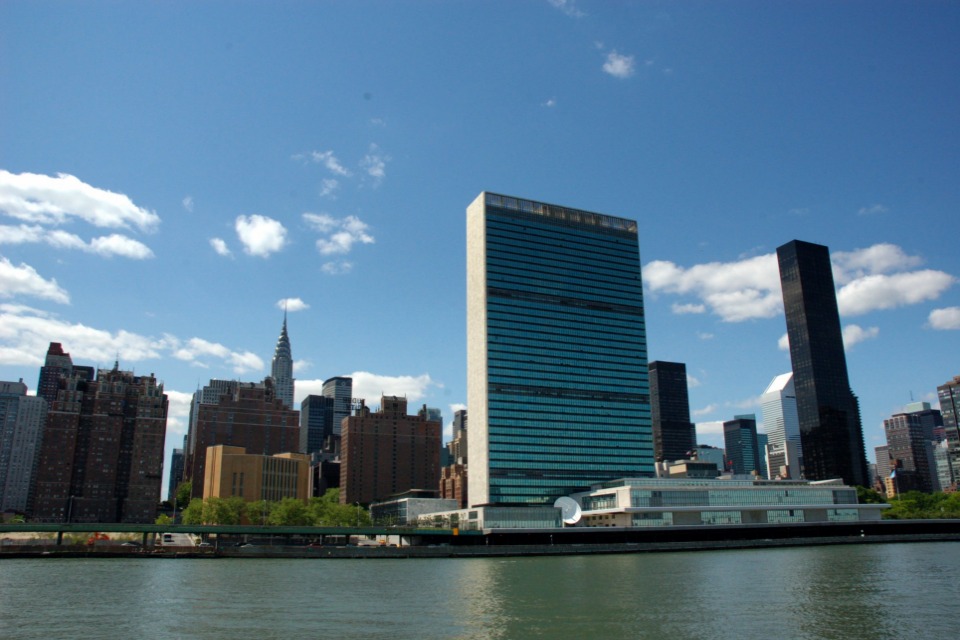"The Council needs to switch from a culture of reaction to a mindset of conflict prevention"
Statement by Ambassador Lyall Grant of the UK Mission to the UN, during the Security Council Open Debate on Conflict Prevention

I would like to thank the Secretary-General and the United Nations High Commissioner on Human Rights for their compelling and frank briefings today. I also pay tribute to the exceptional work of Navi Pillay during her time in office. Mrs Pillay, you have been fiercely and fearlessly independent and principled. Your presence today at this conflict prevention debate reinforces the critical link between peace, security and human rights.
This month, the world commemorates the start of the First World War. We recall with grief and horror the devastation that this and subsequent conflicts, have inflicted upon humanity, ravaging societies and states. Last week in Belgium, we discussed whether – had the UN Security Council existed in 1914 – we might have prevented the First World War. My answer – not unless the Council is prepared to take conflict prevention more seriously than it currently does. Today’s debate is an opportunity for the Council to reflect upon its role in preventing conflict and to recall the moral, humanitarian and political imperatives of early, preventive action.
The nature of conflict has changed in the last twenty years. Intra-state conflicts with complex root causes have, largely, replaced conflicts between States. Because of the international dimensions of such conflicts, the Council’s agenda is full and our capacity is stretched. Yet we seem to have forgotten that prevention is better than cure. The Council cannot continue to act only in crisis mode. The Council was designed to be a smoke detector, not just a fire extinguisher; that is clear from Articles 1 and 24 of the Charter of the United Nations and from its Chapter VI.
There are two main reasons why we have sometimes failed to act on early warnings:
First, the root causes of brewing civil wars are complex; it can be hard to predict exactly when they will flare. The answer to that is regular and timely briefings on early warning indicators from “early warning” actors across the UN system.
Second, the Council has been constrained by a perceived tension between the principle of sovereignty and its conflict prevention role. However, the true enemy of sovereignty is conflict itself as Mrs Pillay has just said; conflicts can shatter states and divide peoples. In contrast, early cooperation with, and support from, UN or regional conflict prevention tools can bolster state sovereignty. A good example of this was the deployment of a small civilian team to Nepal in 2005, which supported the Nepalese in ending conflict and launching a Nepalese led peace process.
While the Council has primary responsibility for the maintenance of international peace and security, many actors have a role to play. Flexibility is key. Like many other things, peace and security begins at home. Individual states must ensure that the key foundations for minimising, managing and resolving tensions are in place- respect for human rights, democracy and strong institutions, founded on the rule of law.
At the United Nations, we need more horizon scanning and early discussion of potential conflicts. We must make better use of the conflict prevention tools listed in Chapter VI of the Charter, including negotiation and mediation as the Secretary-General has just reminded us. We have seen some successes. Said Djinnit and UNOWA’s proactive engagement in Guinea has had a clear stabilising impact. In Yemen, unanimous Council support for the good offices of UN Special Adviser Jamal Benomar helped pave the way for a peaceful, if fragile, democratic transition. But our success rate is patchy, at best.
The resolution we have adopted today recognises the cyclical nature of conflict and the key role that UN regional offices, Special Political Mission, peacekeeping operations, regional and sub-regional organisations can play in breaking this cycle. Peace building is a thread which must be woven into all such activities.
Another core element of resolution 2171 is recognition that serious violations of human rights can be an indicator of conflict, as well as a consequence of conflict. The use of rape as a weapon of war can exacerbate conflict, as well as ravaging lives. This point was made with characteristic clarity by Sergio Viera de Mello, whose tragic killing we commemorated two days ago. He observed that what was missing in geopolitics was “the recognition that flagrant and systematic violations of human rights are frequently the principal cause of global insecurity”. In order to break the cycle of conflict, accountability, including for the most egregious crimes, is therefore critical. Societies must heal and future perpetrators must be deterred.
For moral, political and humanitarian reasons, the United Kingdom fully supports the Secretary General’s drive to put Rights Up Front. He has called upon his staff to act with moral courage by reporting early warning signs of human rights violations. This Council must display the same moral courage by heeding and acting upon all early signs it receives from the Secretary-General and UN protection actors.
In conclusion, as the threats the world faces change and our understanding of the root causes of conflict deepen, our collective security system needs to adapt. As we seek to plan for tomorrow whilst managing the crises of today, the Council must consider the best preventive medicine and who should administer this. In short, the Council needs to switch from a culture of reaction to a mindset of conflict prevention. Only then shall we be properly fulfil the responsibility given to us by the UN Charter.